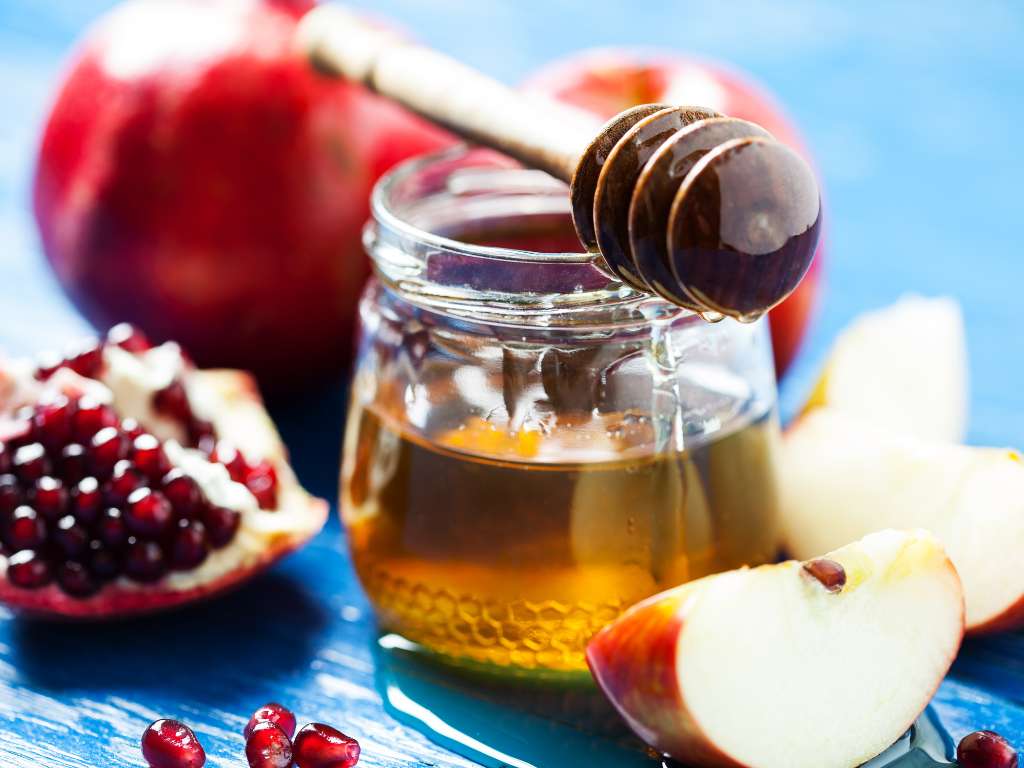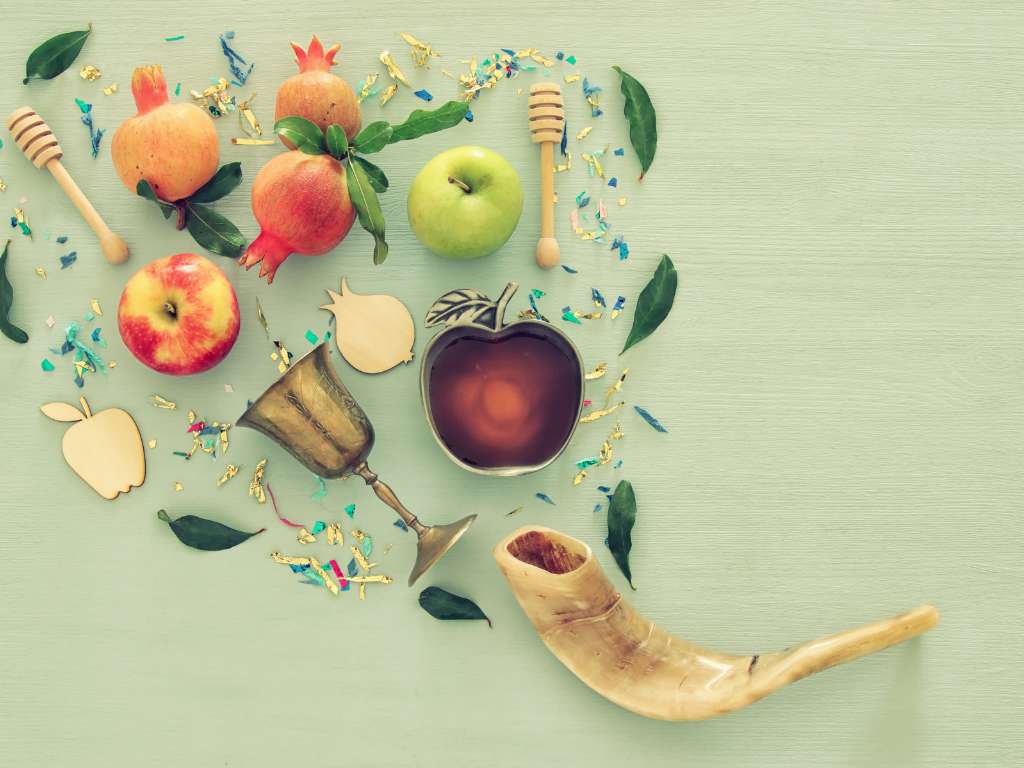Article: Unveiling Rosh Hashanah: Traditions, Symbols, and Meaning Beyond Apples and Honey

Unveiling Rosh Hashanah: Traditions, Symbols, and Meaning Beyond Apples and Honey
As we approach the Jewish New Year, Rosh Hashanah, it's the perfect time to delve deeper into the beauty and complexity of this ancient holiday. While many of us are familiar with the sweet tradition of dipping apples in honey, there's so much more to Rosh Hashanah than meets the eye. In this blog post, we'll uncover some unique and intriguing facets of Rosh Hashanah that you may not be aware of.
1. The Birthday of the World
Rosh Hashanah is often referred to as the "Birthday of the World" in Jewish tradition. This title signifies the belief that on this day, the world was created by God. Each year, Jews take a moment to reflect on the universe's creation, emphasizing our responsibility to be stewards of the Earth and its resources. It's a reminder that the holiday is not only about personal reflection but also about our collective duty to protect our planet.
2. Tashlich: Casting Away Sins
One of the most fascinating customs of Rosh Hashanah is Tashlich. It involves going to a body of water, such as a river or lake, and symbolically casting away one's sins into the water. People empty their pockets of breadcrumbs or small items representing their transgressions while reciting prayers of repentance. This act is a powerful way of acknowledging one's mistakes and seeking forgiveness from God. It's a beautiful reminder of the importance of self-reflection and renewal in the New Year.
3. The Sound of the Shofar
The shofar, a ram's horn, is the quintessential sound of Rosh Hashanah. Its distinct, piercing blasts are meant to awaken the soul and call people to introspection and repentance. What many may not know is that there are different types of shofar blasts, each with its unique significance. The Tekiah, a long, unbroken note, represents wholeness and unity. The Shevarim, a series of broken notes, symbolizes contrition and the idea that we are broken when we sin. Finally, the Teruah, a rapid sequence of short blasts, conveys alarm and urgency. Together, these sounds create a profound experience during Rosh Hashanah services.
4. Round Challah
While traditional braided challah bread is a staple of many Jewish meals, Rosh Hashanah introduces a unique twist—the round challah. The circular shape symbolizes the cycle of life, the passage of time, and the continuity of creation. It also represents unity and the hope for a harmonious year ahead. So, when you enjoy that first slice of round challah, you're not just tasting delicious bread; you're partaking in a profound symbol of renewal.
5. Pomegranates: Seeds of Prosperity
Another symbolic food associated with Rosh Hashanah is the pomegranate. Its juicy, ruby-red seeds are said to represent the many good deeds that people will perform in the coming year. When families eat pomegranates on Rosh Hashanah, they do so with the hope of a year filled with prosperity and positive actions. It's a vivid reminder that our actions can bear fruit in ways we might not always foresee.
Rosh Hashanah is more than just a time for apples and honey; it's a rich tapestry of traditions, symbols, and meanings that inspire introspection, repentance, and renewal. As we celebrate the Jewish New Year, let's embrace the depth of this holiday and its teachings, casting away our sins like breadcrumbs in the water, listening to the soul-stirring sound of the shofar, and savoring the symbolism of each ritual. May this Rosh Hashanah bring you and your loved ones a year filled with sweetness, joy, and blessings. Shanah Tovah U'Metukah – a good and sweet year to you all!
1. The Birthday of the World
Rosh Hashanah is often referred to as the "Birthday of the World" in Jewish tradition. This title signifies the belief that on this day, the world was created by God. Each year, Jews take a moment to reflect on the universe's creation, emphasizing our responsibility to be stewards of the Earth and its resources. It's a reminder that the holiday is not only about personal reflection but also about our collective duty to protect our planet.
2. Tashlich: Casting Away Sins
One of the most fascinating customs of Rosh Hashanah is Tashlich. It involves going to a body of water, such as a river or lake, and symbolically casting away one's sins into the water. People empty their pockets of breadcrumbs or small items representing their transgressions while reciting prayers of repentance. This act is a powerful way of acknowledging one's mistakes and seeking forgiveness from God. It's a beautiful reminder of the importance of self-reflection and renewal in the New Year.
3. The Sound of the Shofar
The shofar, a ram's horn, is the quintessential sound of Rosh Hashanah. Its distinct, piercing blasts are meant to awaken the soul and call people to introspection and repentance. What many may not know is that there are different types of shofar blasts, each with its unique significance. The Tekiah, a long, unbroken note, represents wholeness and unity. The Shevarim, a series of broken notes, symbolizes contrition and the idea that we are broken when we sin. Finally, the Teruah, a rapid sequence of short blasts, conveys alarm and urgency. Together, these sounds create a profound experience during Rosh Hashanah services.
4. Round Challah
While traditional braided challah bread is a staple of many Jewish meals, Rosh Hashanah introduces a unique twist—the round challah. The circular shape symbolizes the cycle of life, the passage of time, and the continuity of creation. It also represents unity and the hope for a harmonious year ahead. So, when you enjoy that first slice of round challah, you're not just tasting delicious bread; you're partaking in a profound symbol of renewal.
5. Pomegranates: Seeds of Prosperity
Another symbolic food associated with Rosh Hashanah is the pomegranate. Its juicy, ruby-red seeds are said to represent the many good deeds that people will perform in the coming year. When families eat pomegranates on Rosh Hashanah, they do so with the hope of a year filled with prosperity and positive actions. It's a vivid reminder that our actions can bear fruit in ways we might not always foresee.
Rosh Hashanah is more than just a time for apples and honey; it's a rich tapestry of traditions, symbols, and meanings that inspire introspection, repentance, and renewal. As we celebrate the Jewish New Year, let's embrace the depth of this holiday and its teachings, casting away our sins like breadcrumbs in the water, listening to the soul-stirring sound of the shofar, and savoring the symbolism of each ritual. May this Rosh Hashanah bring you and your loved ones a year filled with sweetness, joy, and blessings. Shanah Tovah U'Metukah – a good and sweet year to you all!

